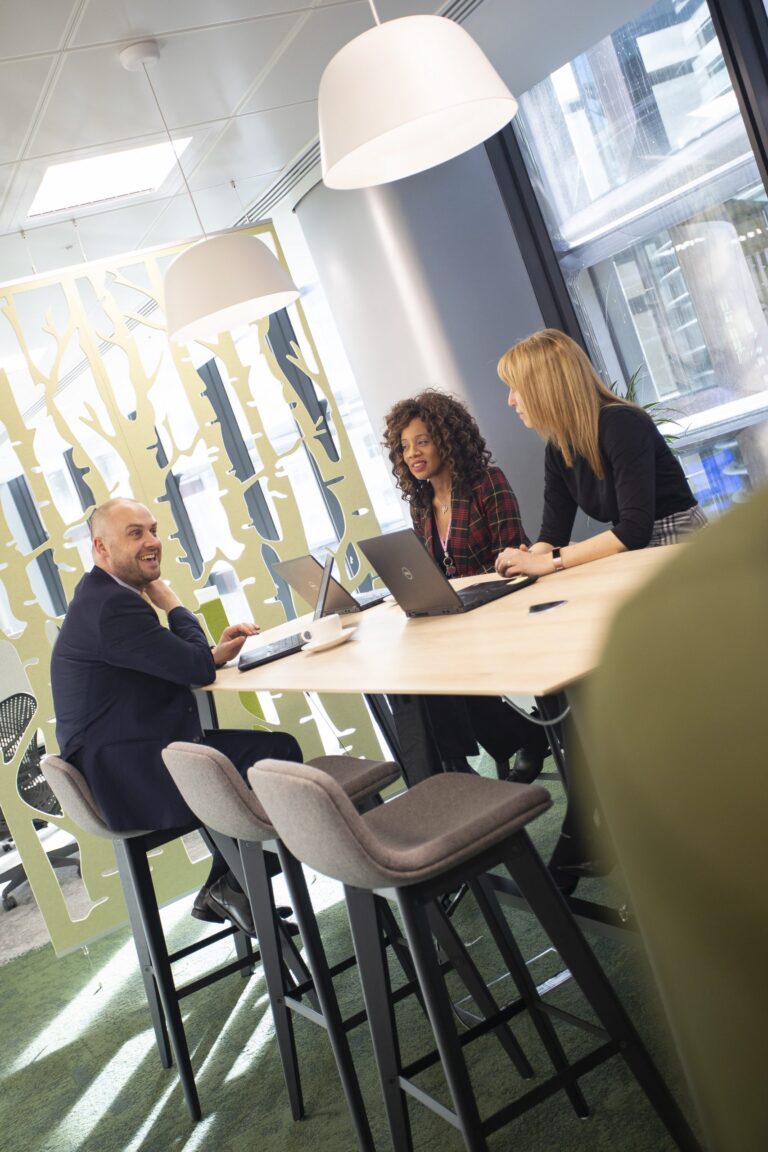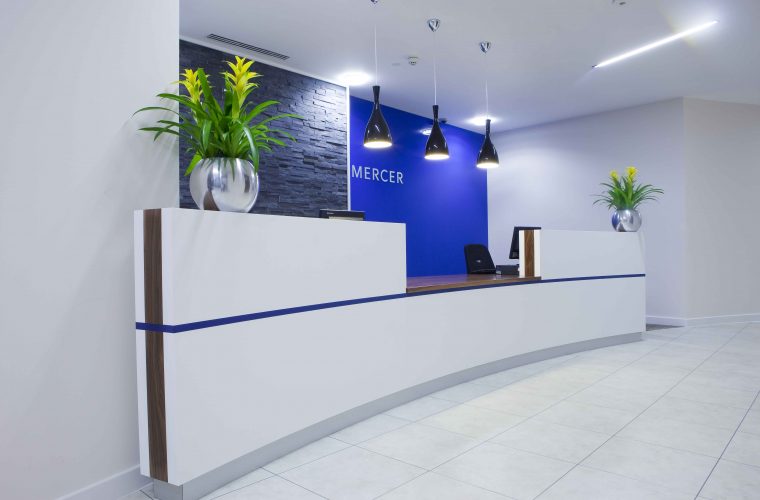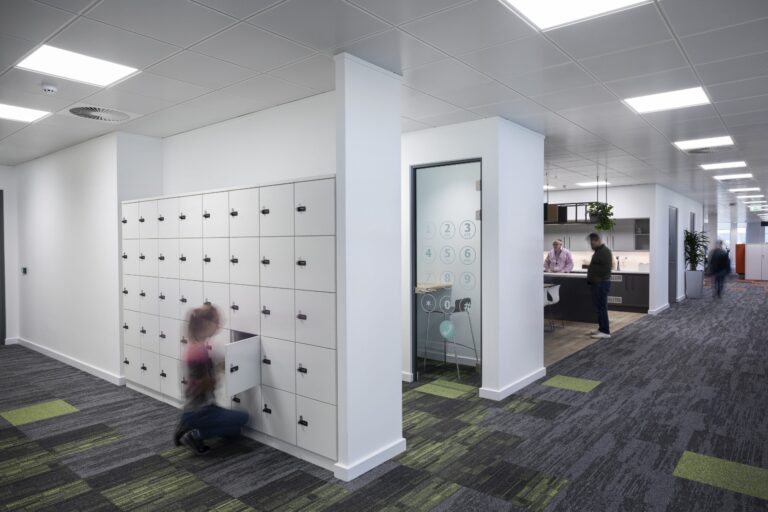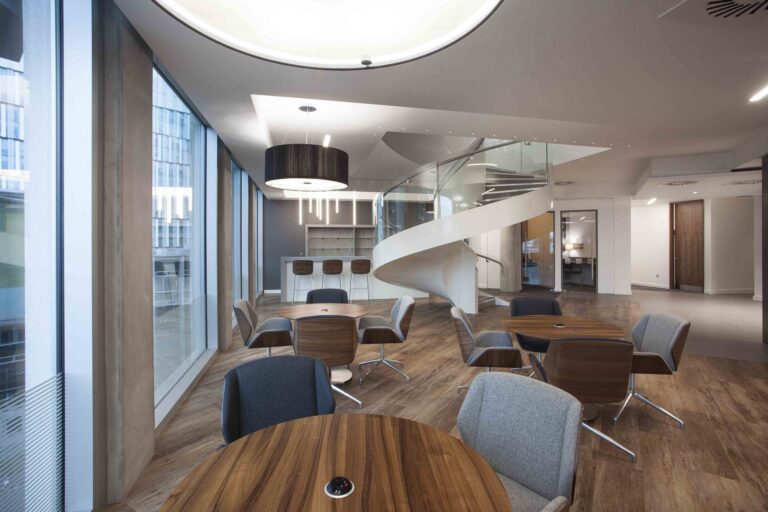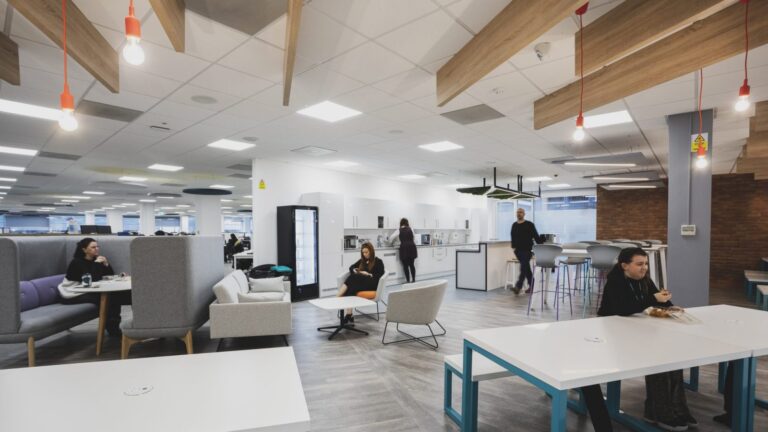
7 things you should know to derive strategic value from the workplace.
Date
27 July 2020
Read length
8 min
As UK businesses try to weather the choppy seas of a continued productivity crisis, greater onus is being placed on finding ways to generate more from the same amount of labour and capital.
Business performance is fundamentally a human issue and the way we work is the driving force behind productivity and profitability, particularly for the country’s growing number of knowledge economy businesses. As the cost of employment and staff salaries make up the largest portion of a business’s overheads, directors need to see a return on that investment, one that is measured in productivity, output and profitability as well as retained talent and expertise.
The workplace is an under-used but highly effective weapon in the productivity arsenal for it is the place where talent, shared purpose, collaboration, innovation, brand and culture coalesce and has the power to bring about transformative business change. However, before productivity can be increased, businesses must first improve their understanding of the needs of their people and organisation and how this impacts the workplace. This involves putting people, process, technology and place under the microscope.
Here are the eight key areas of your business that you must scrutinise and question before trying to extract strategic value from your workplace:
- Process and productivity
Improving productivity requires a benchmark. Establish how productive your business currently is and what level of improvement you need to see. Start by trying to identify inefficiencies and asking how information and work flows through the business and, whether departments and processes are both cooperative and intuitive. It is important to understand how work is passed between your people and where productivity is compromised due to outdated practices and behaviours. - Communication and collaboration
Effective communication underpins all successful businesses. Ask how the business communicates amongst itself? Are your people encouraged to share their ideas and concerns freely? Is there two-way communication between managers and employees? How well do your people and teams work together? Really interrogating this aspect of your business will help to identify where poor communication is impeding progress and where changes can be made to improve employee engagement, which is directly linked to productivity. - Culture and motivation
Culture is a powerful part of this picture and a trusty ally of productivity, for it is culture that defines the ideas, and social behaviours of a workforce. Establish whether your culture supports how work is done and if it is aligned with the overall vision for the business. A positive, empowering and communicative culture will deliver a more engaged and ultimately high performing workforce. You can only let go of the cultural behaviours, habits and notions that are holding you back once you know what they are. - Agility and flexibility
The success of business today is often measured by its ability to flex as needs change. How well can your organisation flex and adapt to changing circumstances? Can interdepartmental teams come together quickly and effectively, regardless of location, to get the job done or are their barriers? Have you considered how more agile working could unlock productivity gains, reduce overheads and improve engagement? All businesses evolve so it is important to understand your team’s responsiveness to change. Could you successfully take them with you when change is needed and are you providing the right training, support and guidance to get you all to your goal? - Tools and technology
If your people don’t have the right tools, they can’t work effectively. To unlock greater productivity, you must evaluate the efficacy and efficiency of the tools and technologies you provide. Do employees have the right ones to support their day to day work and the organisation in achieving its goals? Are there others that could help to unlock new ways of working or greater productivity? Are employees able to work where, when and how they want to deliver the best outcome? - Innovation and creativity
With a growing number of knowledge economy businesses come a greater appreciation of innovation and creativity. Does your organisation and workplace give people the space (both mental and actual) in which to problem solve and be creative? Modern workplaces need to support new and varied ways of working and have inherent flexibility ‘designed-in’ so that workplace spaces, structures and systems can be reconfigured when new opportunities arise. Ask yourself, is my workplace one of creativity and is there enough stimulus and variety to keep people engaged and interested? - Wellbeing
Wellbeing is now a boardroom issues as business leaders recognizing the importance of looking after the holistic needs of their greatest assets. Ask whether your organisation and workplace really consider employee wellbeing. Do you promote healthy patterns of work and behaviour and does the environment support healthy choices, be that regarding working style, nutrition or social cohesion within the business?
The workspace alone will not plug the productivity gap, but when combined with improvements to process efficiency and operations, there is potential for transformative change. If just a 1% increase in national productivity could deliver £20billion[1] to the economy, even small, incremental improvements could deliver tangible profitability gains.
Whether your commercial priority is faster productive development, reduced operating costs, business flexibility or lower staff attrition, it’s impossible to write an accurate and detailed strategy to get there without first understanding how the organisation is currently working. Analysing people, the work they do and how they interact with each other, as well as looking at the tools, processes and spaces they use, provides a highly accurate and sometimes sobering view of how much more needs to be done.
The workplace has an important role to play in driving output and in a productivity crisis it is both timely and necessary to harness the power of well-designed and fit-for-purpose work environments. Organisations must see the workplace as productivity-enabler and means to future-proof their operations. The most productive workplaces are living and breathing environments, consistently evaluated and incrementally changed to ensure they remain aligned with the organisation’s overarching goals and keep the fires of productivity stoked. Just be sure to put the right foundations in place and make it your business to know the needs of your business inside out.
See how we could help with your new office interior design or office design and build project here
Get in touch
We love nothing better than talking all things workplace and design – got a question, potential project or just need some guidance?
Drop us a note…


